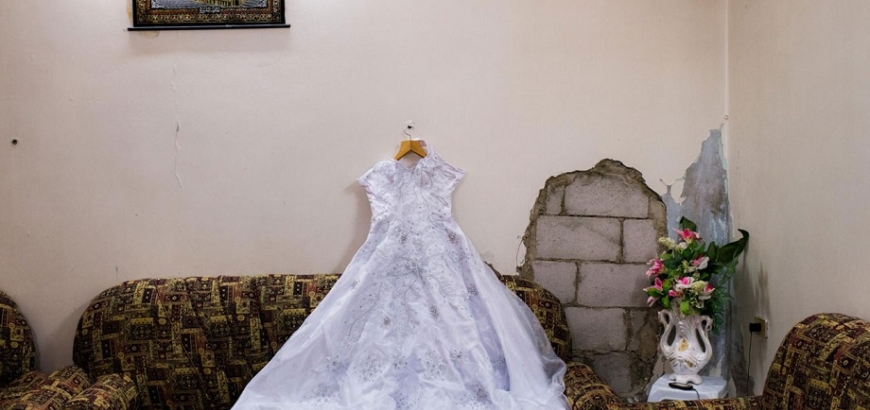The official responsible for the program against gender-based violence at the United Nations Population Fund, Widad Babker, announced there has been an increase in child marriage in Syria from 13 to 46 percent during the war. Despite a decline in numbers before the start of the crisis, the numbers had started to rise agains, and that the rate was according to studies carried out by the Fund in a number of areas.
In a statement to Al-Watan on the sidelines of the Charity Bazaar for Women on the occasion of International Women’s Day, Babker said that the areas that had been under the control of the Islamic State had suffered from major amounts of violence even in the matter of the repeated marriages of young girls.
Babker said that the reasons for child marriage included the economic problems that families suffer from, in addition to the matter of protection, because there were some families that were afraid for their daughter’s safety, especially in the areas where armed groups were present.
Babker added, “The reasons also include lifting the burden on families to provide for them as well as other expenses, which these families find are relieved of when they marry off their daughters, even at a young age.” She said that the matter of protection had a major impact on child marriage due to the fear they would be subject to gender-based violence.
Babker said that the issue of unidentified fathers was a major problem and that the Fund was not carrying out this work alone, but that there was also the Syrian Trust and the Red Crescent. She said that cases were referred to these two organizations to provide legal awareness in the registration in this matter.
The head of the Syrian Commission for Family and Population Affairs, Akram al-Qish, told Al-Watan that the percentage of female breadwinners had more than doubled since the start of the war, and that the commission was planning a field survey of female breadwinners if the results of the demographic survey carried out by the Central Bureau for Statistics do not cover this data.
Qish said that the Bazaar came after a major effort to prepare and train women to make products. He noted that there were efforts with all concerned agencies to deliver these products to markets and to work on promoting them and delivering them to the consumer directly, and noting the need for a decent and continuous source of income for female breadwinners.
Qish also revealed that the Ministry of Social Affairs and Labor in cooperation with the Agriculture Ministry was opening continuous and stable sale outlets, which leads to a stable offering of products, as well as taking into consideration competing goods and achieving a sort of exchange that makes marketing available to all women.
He said that during a follow up it became clear that there was a problem among female breadwinners of marketing products and getting them to the consumer, as well as selling the products in specific places that cost the women a large amount.
He said that the work being done to empower Syrian women was a large part of the program which the agency had carried out in cooperation with all government agencies, while establishing a national framework to support and empower women.
This article was translated and edited by The Syrian Observer. Responsibility for the information and views set out in this article lies entirely with the author.


